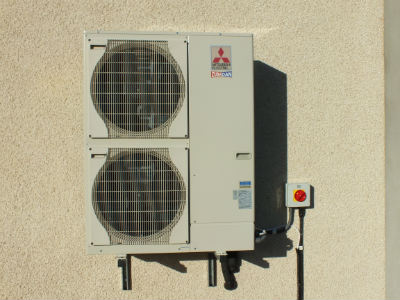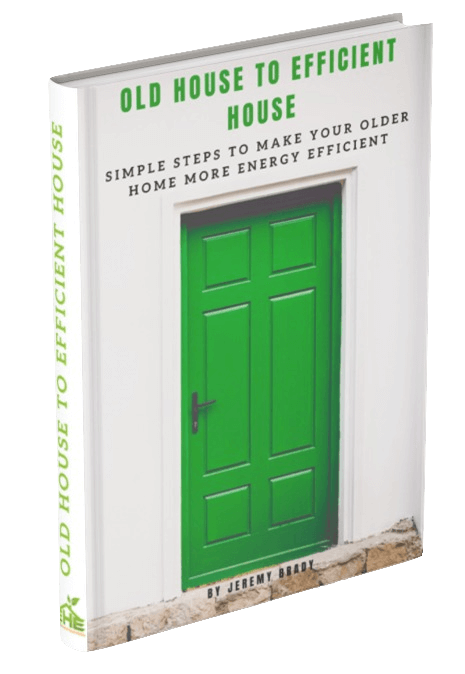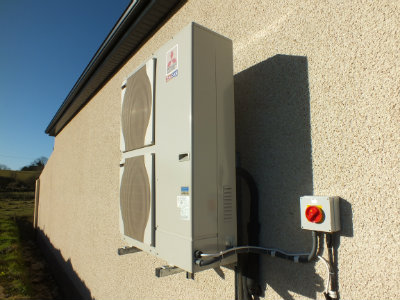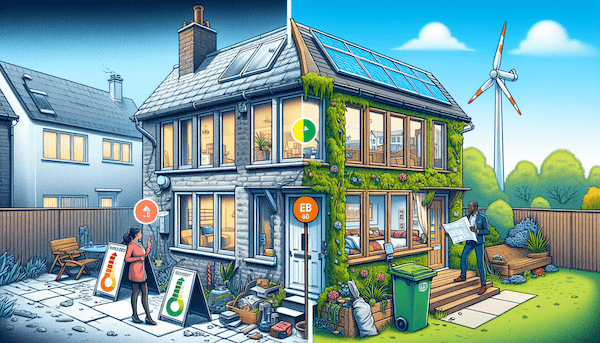- Home
- What are Heat Pumps
- Heat Pump Disadvantages
Heat Pump Problems
and Solutions
What heat pump problems should you be aware of before buying and should you let these issues put you off?
As with most things there'll always be ups and downs and the secret is to make sure you're aware of both.
That way, when you understand exactly what the heat pump issues are you can weigh them up against the potential solutions or advantages to you as a home owner and make an informed decision.
Heat Pump Problems:

- The biggest of the heat pump problems is they require electricity to run. So it's essential that your system is as efficient
as possible and your house is as well insulated and draught free as
possible.
That way your home will stay warmer for longer meaning you'll need less heat and in turn use less electricity to generate that heat.
- Heat pumps can be relatively expensive to install - £8,000-£15,000 for a typical air source heat pump installation.
- Heat pumps work best with
under-floor heating - this is because they will typically heat the water in your heating system to between 35-45 ºC for the heating system (they can warm the domestic hot water further to around 45-55°C). Traditional
radiator systems run at around 60-70 ºC.
Although a traditional radiator will still operate at the lower temperature they'll just take longer to heat your room. Or you could install large volume radiators which are more efficient with lower temperatures.
- Ground source and water source heat pumps are more expensive and so are less likely to be as cost effective as air source when retrofitting.
Air source heat pumps tend to be more cost effective than the other two due to its lower cost. - Although heat pumps can also be used to heat your domestic hot
water, you will
still have to top up the water temperature with another method to kill off any bacteria in the system (you'll probably need to top it up to around 60 - 65°C. If you rely on your heat pump to get the water hotter than 45 - 55ºC it will become less efficient and reduce your payback time as it will use more electricity to achieve this temperature increase.
As an eco-alternative solar thermal panels or PV panels in conjunction wilt a link to your immersion heater are a great way of topping up your domestic hot water.
Advantages to counteract the heat pump problems:
- Heat pumps produce no pollutants or exhaust gases - Once installed the heat pump runs on electricity, so no nasty exhaust gases or unpleasant pollutants escape into the atmosphere.
- Your running cost will not be dependent on the price
of fossil fuels - heat pumps draw heat from one location on your site and transfer it to another using electricity.
- Heat pumps can be linked to renewable technology that produces electric on site such as a PV system (photovoltaic panels), batteries or a wind turbine etc. reducing your need for electricity from the power companies.
- Heat pumps have a high coefficient of performance (CoP) of around 3:1 (some have even better ratios) - This means each unit of electricity used to power your heat pump can produce 3 units of heat in an efficient
system.
- Heat Pumps require very little maintenance or servicing - when it comes to heat pump reliability, once the system is installed it should be tested/serviced annually.
- You will do away with the risk of carbon monoxide poisoning which can be fatal.
- If you're building a new property you would have to buy a new boiler
(c.£1,000 - £1,500) and possibly an oil tank (c.£1,000) and pay for the fuel either filling the oil tank
(c.£1,000) or pay for the gas on an on-going basis.
These are costs you will incur regardless of what type of heating you install, so you can allow these costs against your heat pump. - You may be eligible for a grant to help with the cost via the Boiler Upgrade Scheme.
Should these issues put you off heat pump technology?
In a word, no.
Provided you've a well-designed system and install it into a well-insulated home which is draught proofed and has good double or triple glazing.
The key point to remember is that for all the heat pump problems encountered, there are solutions. As with any eco-technology, you need to be well informed and get as much information as possible before committing to that particular technology, and make sure you spend your money on the right system for your needs.
If you'd like some more explanation on the workings of heat pumps have a look at my article on how heat pumps work.











New! Comments
Have your say about what you just read! Leave me a comment in the box below.